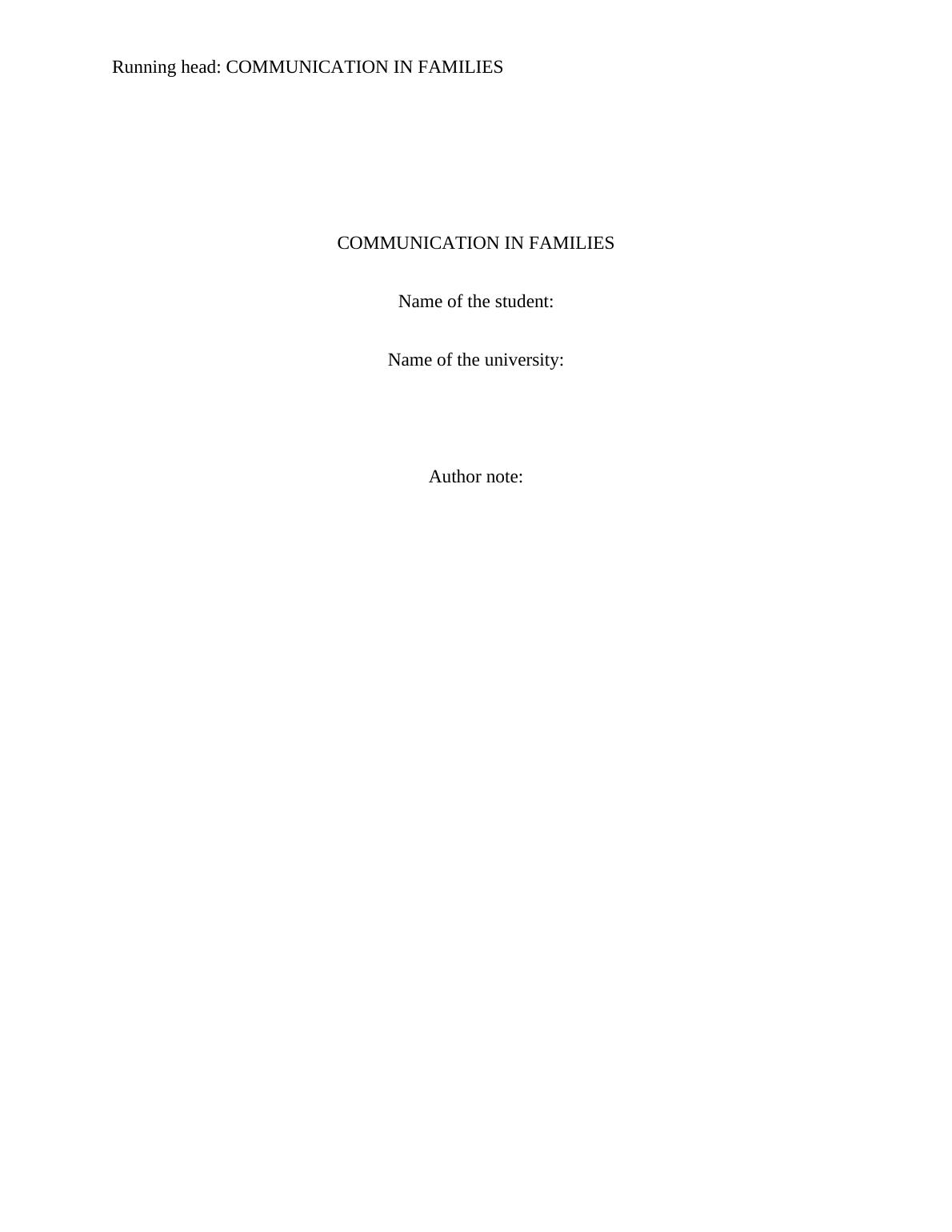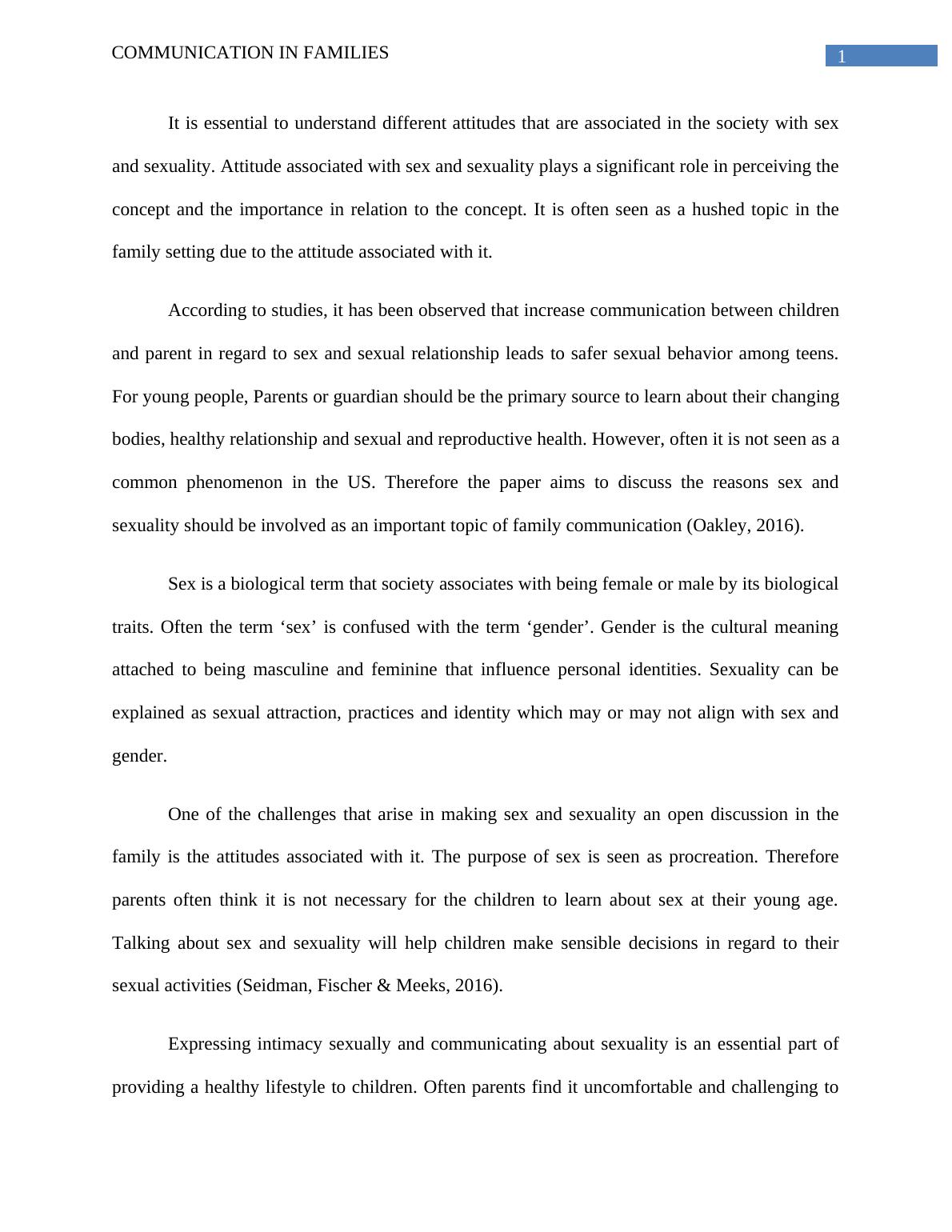Communication in Families
Propose a class for the United States Government's Strong Families program initiative, focusing on communication about sex and sexuality within the family system.
4 Pages587 Words85 Views
Added on 2023-01-19
About This Document
This article discusses the importance of discussing sex and sexuality in family communication. It explores the attitudes associated with sex and how open communication can lead to safer sexual behavior among teens. The paper also addresses the challenges and benefits of talking about sex and provides suggestions for parents on how to approach the topic.
Communication in Families
Propose a class for the United States Government's Strong Families program initiative, focusing on communication about sex and sexuality within the family system.
Added on 2023-01-19
ShareRelated Documents
End of preview
Want to access all the pages? Upload your documents or become a member.
Factors Affecting Gender Roles: Parental Influence and Play Patterns
|4
|717
|328
ATSGC3848 GENDER INEQUALITY
|8
|1878
|263
EDUC 6013: Teaching Literacy to Diverse Students
|13
|4495
|121
Anthropology - Culture, Gender and Identity Thesis 2022
|8
|2294
|27
ECDV 115 Early Learning & Child Care
|9
|1812
|61
Management | All about Sexuality - Study
|6
|2121
|15


